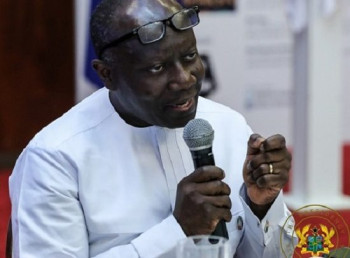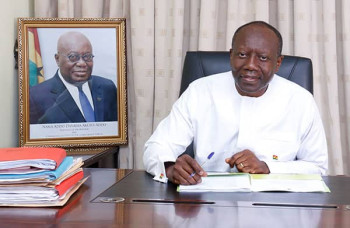Despite the implementation of the Electronic Transaction Levy (E-Levy), total Mobile Money transactions in the first 10 months of 2022 grew by 12.9% year-on-year to ¢833.3 billion,
the latest Summary of Economic and Financial Data by the Bank of Ghana has revealed. It’s, therefore, baffling why the government cannot accrue significant revenue from the tax on electronic transfers, despite the immense growth in mobile money transactions. In October 2021, total mobile money transactions were estimated at ¢737.6 billion.
Comparing that figure to the same period in 2022, the transactions have shot up by an additional ¢95.7 billion. A recent survey by the Center for Economics Finance and Inequality Studies revealed that many consumers do not pay E-Levy despite undertaking mobile money transactions. This is because they reach a gentleman’s agreement” with the vendors to enable them to deposit cash into the wallet of the receiver through a “Mobile Money” merchant account.
In this case, the government will therefore have to listen to the concerns of many and bring down the rate of the e-levy further to at least 0.5% in order to prevent consumers from avoiding payment of the levy, whilst raking in more revenue from the levy. Meanwhile, the biggest mobile money transactions executed so far in 2022 was the month of October 2022 in which ¢100 billion transactions were recorded. It surpassed the ¢99.1 billion recorded in July 2022. From the data, Mobile Money transactions have been surging since the implementation of E-levy in May 2022. It went up to ¢77.4 billion in June 2022, from ¢71.4 billion in May 2022, but remain relatively the same at ¢77.2 billion in July 2022. It however shot up significantly by ¢9.9 billion to ¢87.1 billion in August 2022, and subsequently went up marginally to ¢88.8 billion in September 2022. It reached a significant ¢100.2 billion in October 2022, about ¢11.4 billion increase.
Total Mobile Money transactions hit 833.3 billion in October 2022 despite E-levy Despite the presence of the Electronic Transaction Levy (E-Levy), total Mobile Money transactions in the first 10 months of this year grew by 12.9% year-on-year to ¢833.3 billion, the latest Summary of Economic and Financial Data by the Bank of Ghana has revealed. It’s therefore baffling why the government cannot accrue significant revenue from the tax on electronic transfers, despite the immense growth in mobile money transactions. In October 2022, total mobile money transactions were estimated at 737.6 billion.
Comparing that figure to the same period this year, the transactions have shot up by an additional 95.7 billion. A recent survey by the Center for Economics Finance and Inequality Studies revealed that many consumers do not pay E-Levy despite undertaking mobile money transactions. This is because they reach a gentleman’s agreement” with the vendors to enable them to deposit cash into the wallet of the receiver through a “Mobile Money” merchant account. In this case, the government will therefore have to listen to concerns by many and bring down the rate of the e-levy further to at least 0.5% in order to prevent consumers from avoiding payment of the levy.












